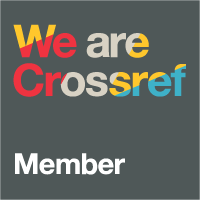Target audience:
Scientists/researchers (medical, social, educational fields and etc.), mental health (MH) practitioners, policy-makers, researchers, lawyers.
Major objectives:
to attract attention of researchers and policy-makers to urgent problems of mental health care (MHC);
to provide a platform for dissemination of ideas and development of academic and non-academic network of MHC researchers, practitioners and policy-makers;
to promote high quality research most specifically on MH in developing countries and countries in transition;
to investigate multi-disciplinary, transdisciplinary and multicultural aspects and solutions related to MHC
Field of study and special focus:
Medicine, Social Sciences, Education, Economics, Law, Inter- and Transdisciplinary studies
Topics:
MHC systems in the context of global social challenges:
Mental health and migration:
Mental health in times of military conflicts;
Mental health and community;
Specific issues of MHC:
Child neuropsychiatry;
Support for people with disabilities;
Work with elders related to mental health;
MHC in rural areas;
Addictive behavior;
Higher Education and MHC: Research and Innovations: How to cite: Author (2018). Title of the paper, MHGC Proceedings (pp.). Rome, Italy.
International Support
The MHGC Proceedings contain research papers on multidisciplinary aspects of Mental Health Care system in globally
Contents
The MHGC Proceedings contain research papers on multidisciplinary aspects of Mental Health Care system in globally
Contents Protecting Mental Health in an Epoch of Virtualization (Olena Andriienko) 6 Features of the Application of the Cognitive-Behavioural Therapy Techniques as the Method of Early Intervention in Therapy of Psychotic Disorders (Oleksandr Avramchuk, Hrystia Shalak) 8 Emotional Characteristic of Personality Maturity of Teachers in Conditions of Social Transformation (Svitlana Baranova) 10 Acceptance of Own Corporeality as Sanogene Factor in the Development of the Marital Relationship (Halyna Bevz) 12 Preserving Human Mental Health through Control of Pathogenic Text in Mass Media by Means of Indexing and Marking (Olesya Bik) 14 Bulling as a Model of Systemic Deficit. Healing Strategies (Angela Borshchevska, Nataliya Ryshkovska) 16 Explorative Study of Psychosocial Stress Factors that Cause Professional Burnout Among Teachers, Who Leave Near the Front-Line Zone in the East of Ukraine (Andriy Girnyk1, Yulia Donets2, Sergiy Bogdanov2, Victoriya Solovyova2, Lyudmyla Romanenko3) 18 Features of Psychosocial Support of Combatants’ Wives (Nataliia Didyk) 22 Role Models’ Peculiarities of Women with Crisis Pregnancies (Natalie Heisonyuk, Yaroslava Andrieieva) 25 Psychological Sense of Ownership: from Disorders to Norm (Iryna Hubeladze) 27 Nuclear Power Plant Disaster: Impact on Mental Health and Lifestyle of Liquidators (Olha Humeniuk) 29 The Adaptability Factor of Young People with the Status of a Disabled Child in the Context of Medical and Social Expertise (Victoria Khramtsova, Yulia Honchar) 31 Changing Approaches to Dementia Management: How Relevant Is It for Ukraine? (Oleksandra Khudoba) 33 Parental Competence with Autism’s Children: Current and Perspective Research (Hanna Khvorova) 35 The Research of the “Courage to Continue” Using Narrative and Ideographic Approaches (Zoia Kireeva, Оlena Odnostalko) 37 The Narcissistic Ways to the Existential Self-Fulfillment (Maria Klymenko) 39 Multidisciplinary Approach to Research of the Adherence to Treatment Phenomenon in Patients with Diabetes Mellitus (Anna Kogut1, M. Bobryk1, O. Potapov2, I. Frankova1, J. Komisarenko1, O. Khaustova1, O. Chaban1) 41 The Influence of the Emotional Intelligence Features on the Intensity of the Loneliness Experience in Adolescence (Lyudmyla Kolisnyk) 43 Group support for vulnerable groups as a prerequisite for mental health (Olha Korobanova) 47 Public Health Strengthening in the Context of Community Adaptation to the Consequences of a Military Conflict: Salutogenic Approach (Larysa Korobka) 48 Personality Features of Pet Owners (Eduard Krainikov1, Eugene Prokopovich1, Thais Bezkrovna2) 50 Subjective dimension of mental health: Ukrainian adaptation of the Orientation to Happiness Scale (Iryna Kryvenko, Galyna Petryk) 51 Readaptation of ATO Veterans and their Wives: Experience of Psychosocial Assistance School (Borys Lazorenko1, Kateryna Kalnytska2) 53 Reasons of Healthy Behaviour Disorders in Adolescence (Maryna Martseniuk) 55 Stress Resistance in the Structure of Individual Psychological Characteristics of Students (Iryna Martyniuk) 57 Relationship Between Indicators of a Person’s Mental Health and Attitude to Pets (Katerina Milutina) 59 East and West about Mental Health: Personal and Social Strategies for the Achievement (Sergei Naidenov) 63 Intersubjectness as a Resource to Maintain Mental Health (Maria Nakonechna) 64 Political and Legal Informing of Students in Conditions of Military Conflict Between Russia and Ukraine (Lyudmila Nikonenko) 65 Psychological Health of a Person: Theoretical Issues (Mykola Papucha) 66 Employee’s Mental Health in the Service Organizations as the Object of Psychological Research (Igor Proshukalo) 67 Are Extrovert People More Satisfied with Life? Case Study (lena-Ramona Richițeanu-Năstase, Camelia Stăiculescu) 70 Pilot Study of Stigmatization of Mental Health Problems in the Ukrainian Educational Environment (Olha Savychenko, Natalia Portnytska) 71 Сonfession as a Psychotherapeutic Tool to Work with Ego Inflation (Iryna Semkiv) 73 Psycho-Information (Psychotronic) Technologies for Overcoming the Effects of Operative-Combat Mental Trauma: Addictive Disorders, Drug-Resistant Major Depression, Anhedonia and Alexithymia. First Report (Anatolii V. Sergiienko1, Taras A. Sergiienko2, Olesia O. Kovalyk3, Taras I. Kovalyk4) 74 Attitude to Supervision as the Form of Professional Support: Survey Results of the Helping Professions’ Specialists (Diana Shtryhol1, Larysa Spitsyna2, Victoria Melman3, Oleksii Vydysh4, Inese Stankus-Visa5, Zilvinas Gailius6) 77 The Cognitive Methods of Protection the Adolescences’ Mental Health in the World Wide Web (Oksana Strilchuk) 78 Is autism Spectrum Disorder (ASD) a Mind-and-Somatic State "Neuro-Managing" System Malfunction? About Some Possible Mechanisms of this Kind of Neurodevelopmental Disorder (Oleksii Tanasiienko1, Olena Tanasiienko2) 79 Applying The Semantic Differential to Compare the Experiences of Existential Fears (Kateryna Titova1, Volodymyr Savinov2) 80 Psychological Factors of the Formation of Victimization of Women in the Modern World (Vakulich Tetyana) 83 Media-Art-Therapy for Mental Health Care (Olena Voznesenska) 84 Traumafokus (ТF) – Psychotherapy for Chronic Pain Regulation and Pain Syndromes (Thomas Ch. Weber) 86 Ethical Grounds of Psychological Help as a Means of Preserving Mental Health of a Person (Tetiana Yablonska, Natalia Bulatevych) 89 Neurofitness as a Method of Psychotherapy for Children with Psychoneurological Pathologies (Оlga Yashna1, Olexandr Makarenko1, Alla Shapovalova2) 92 Social and Cultural Adaptation: Linguistic Aspects (Zorjana Kunch, Yaryna Turchyn) Phenomenon of positive self-attitude on the way of post-traumatic growth of the veterans of combat operations (Lesya Inzhyyevskaz) Gender roles in youth: The Perception and development of their own models (Olha Pletka)







